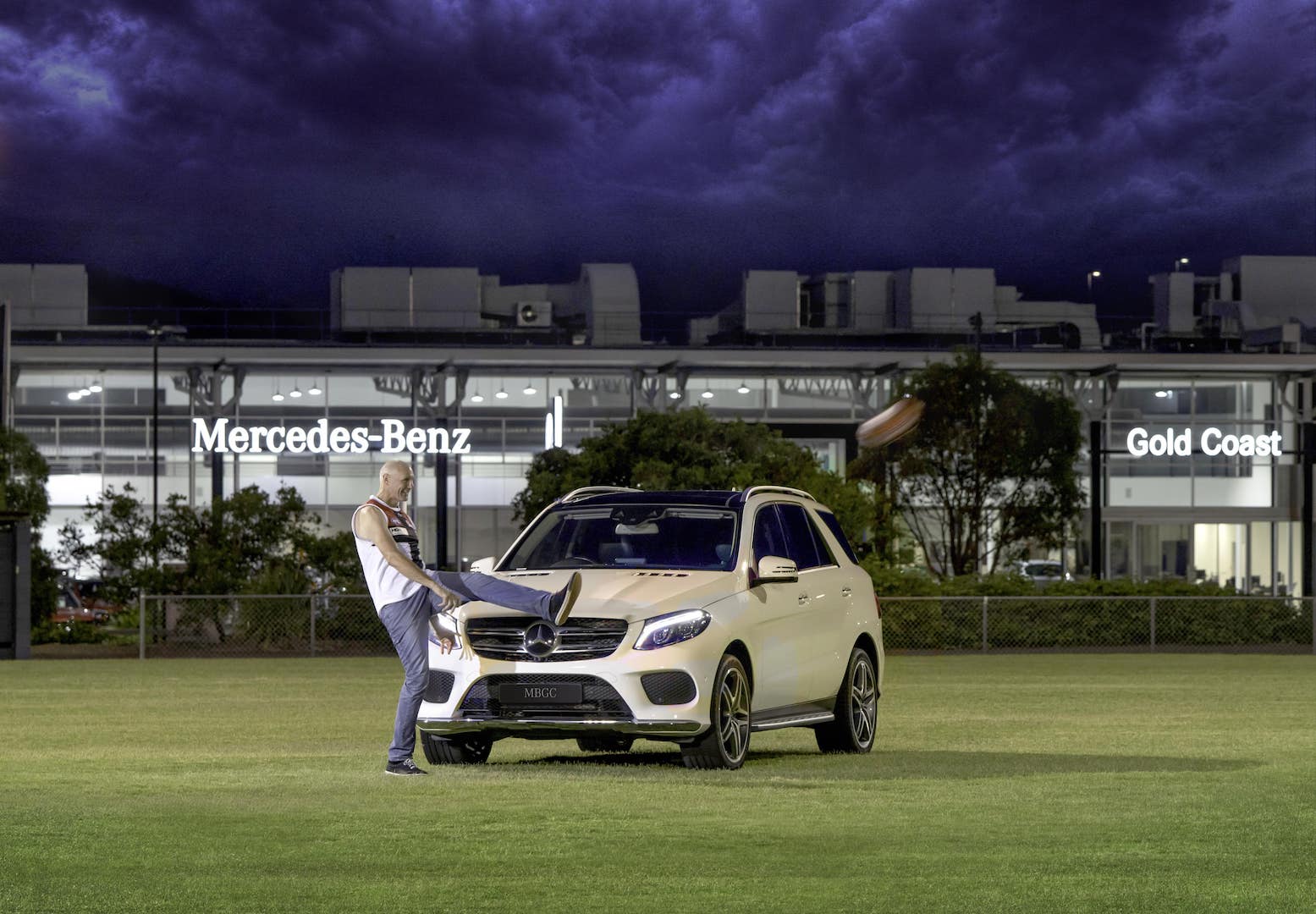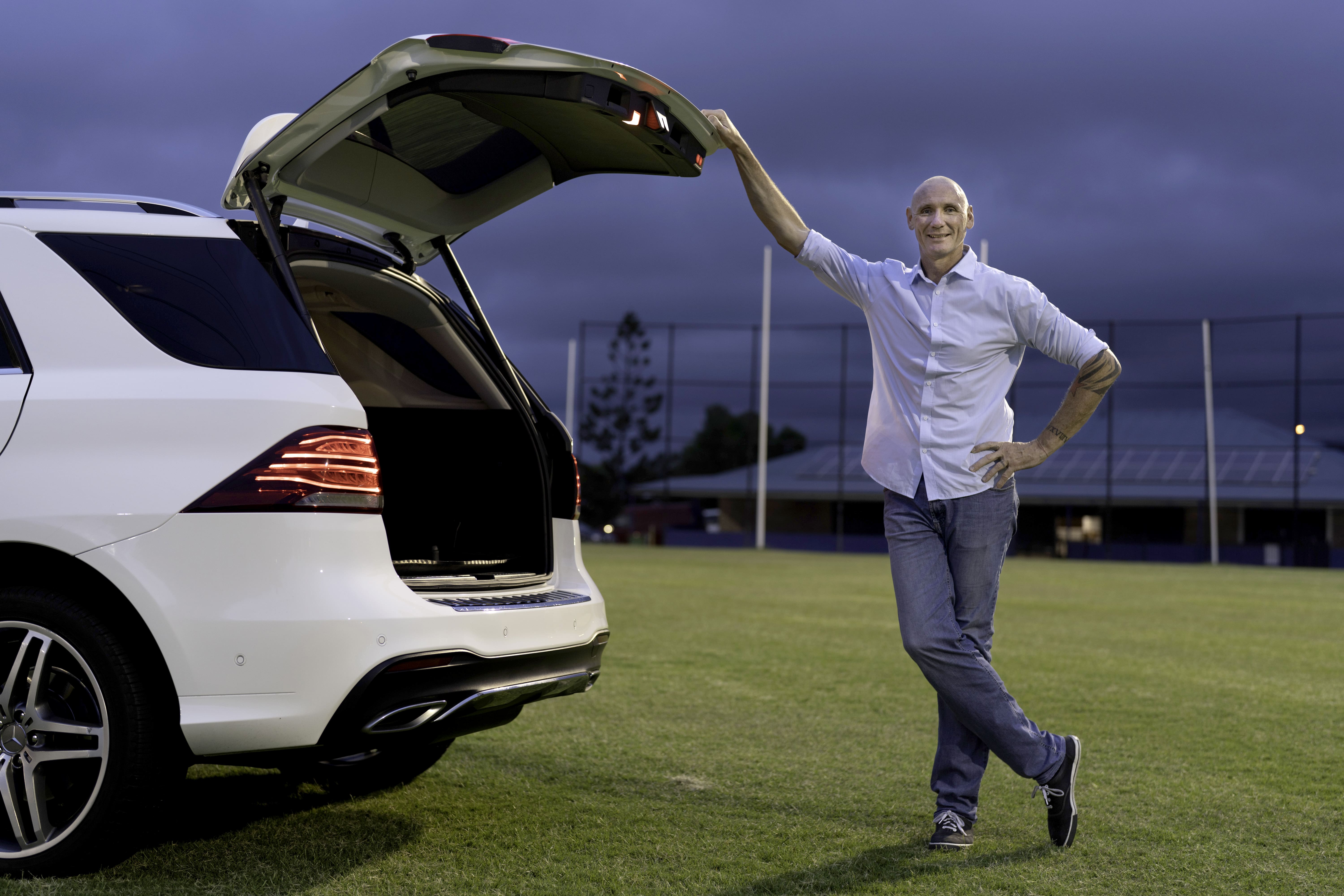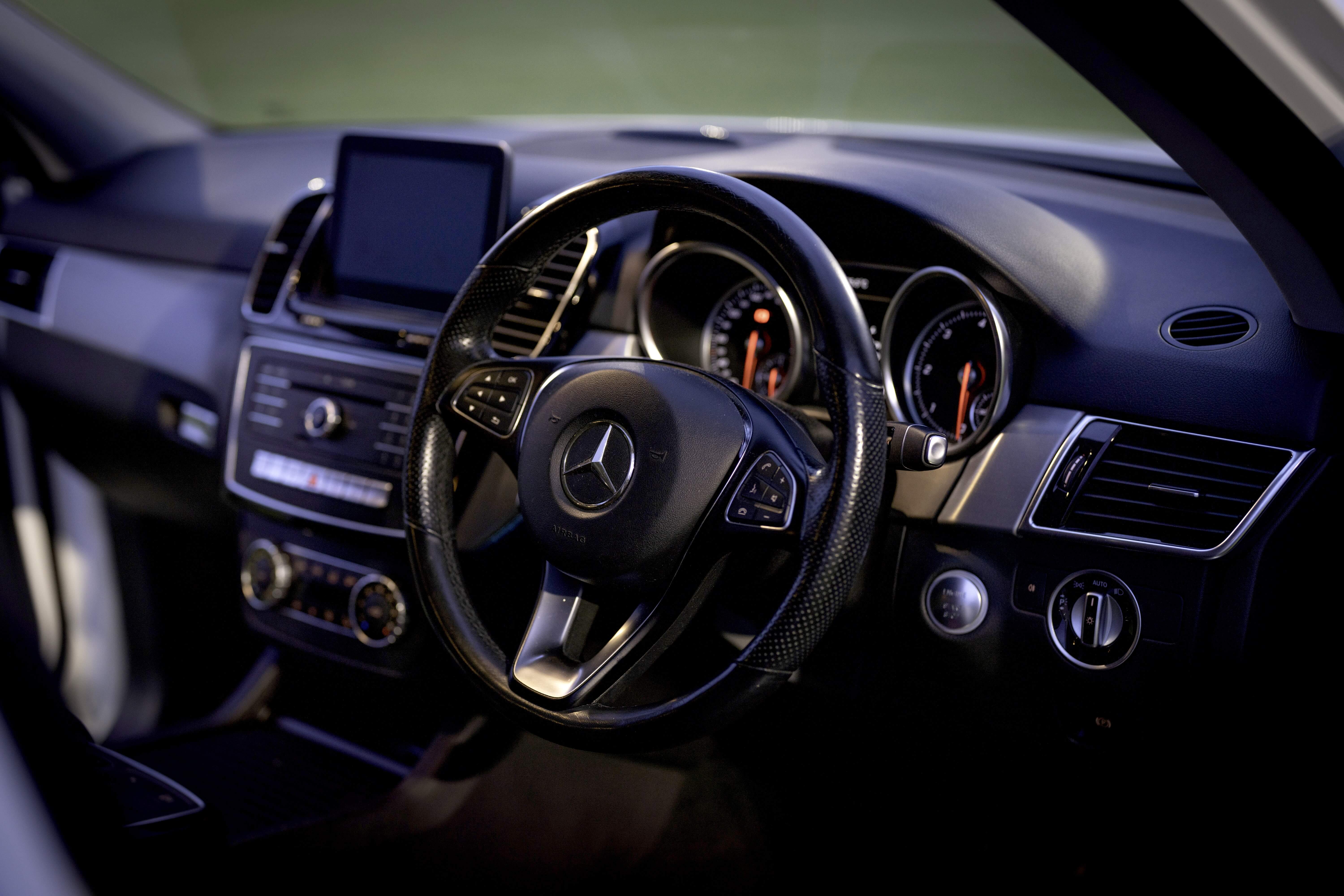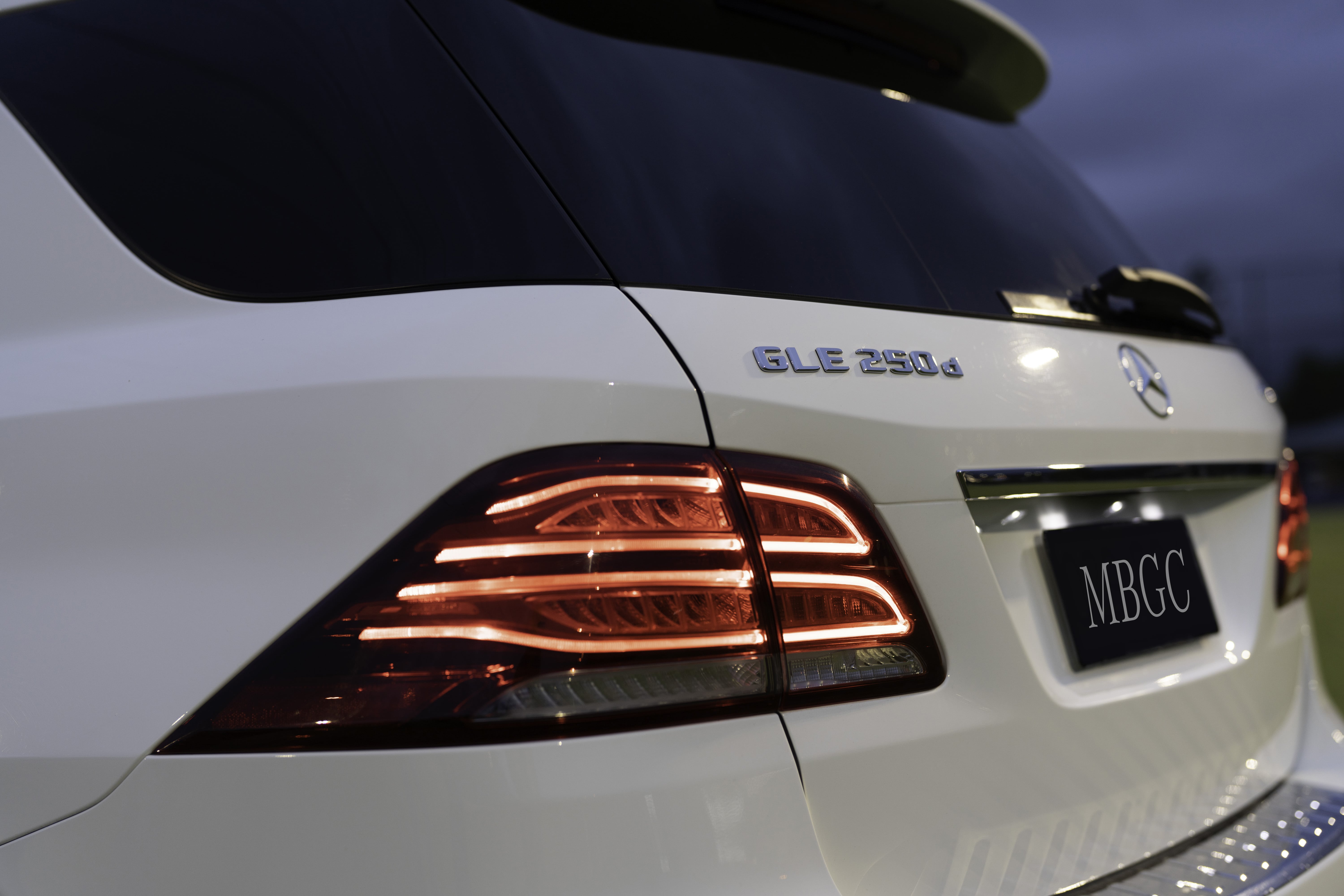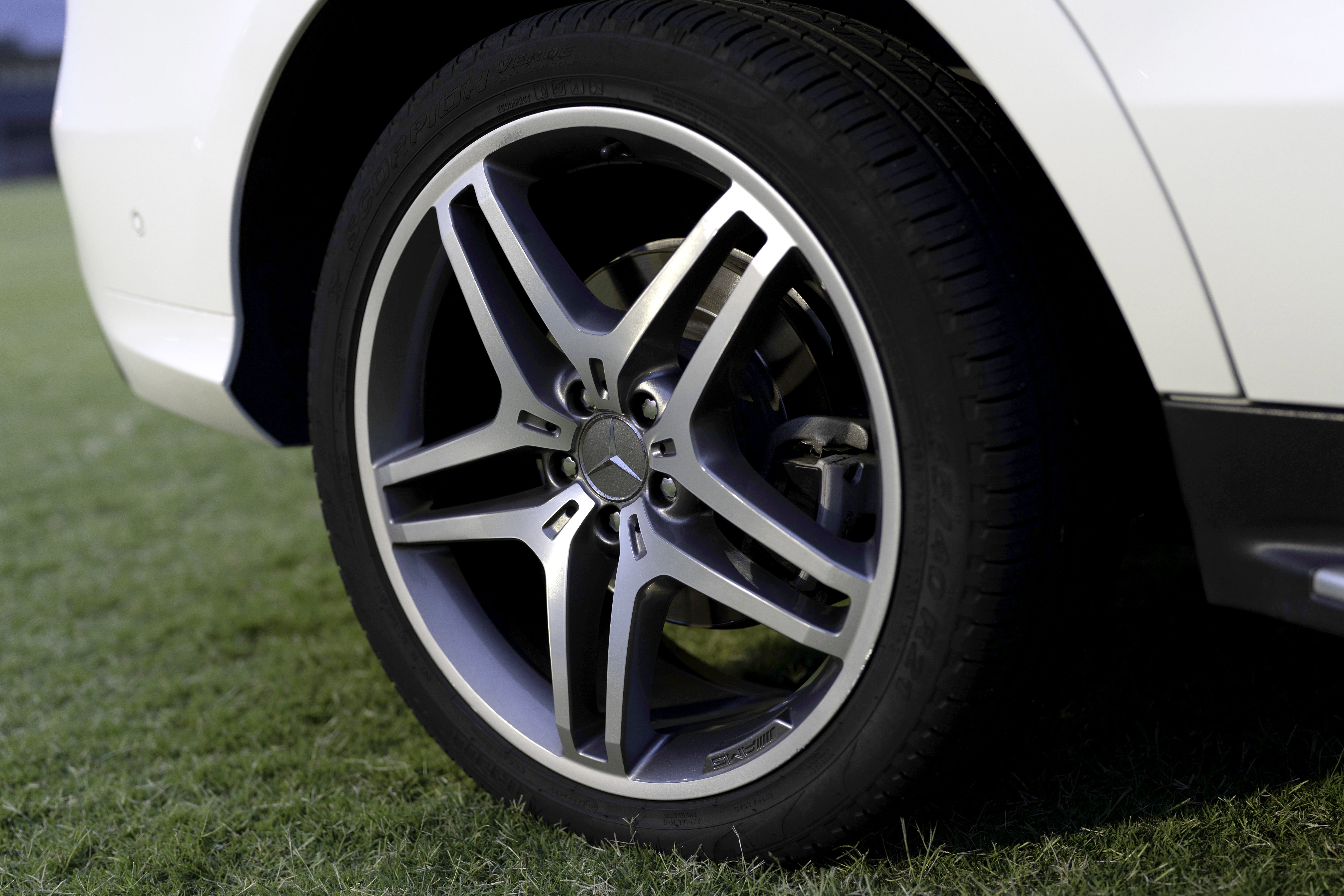From the cheering crowds of packed football stadiums to the broadcast booth of Gold Coast breakfast radio, Spida Everitt has spun a successful web where footy, family and community rule.
Spida Everitt’s real name is Peter, but not many people know it.
His height and lanky limbs first earned him the nickname ‘Stalker’ before the name Spida, after the long-legged dandelion spider, caught on during his early twenties.
The three-time All-Australian former AFL player has had a colourful career that’s kept him in the public eye.
Having largely driven sponsored vehicles, Spida hasn’t owned a car in over 15 years.
Now he’s got the best of both worlds, owning an X-Class and a GLE Mercedes-Benz.
“I love the job they do, whether it’s towing or transporting materials, they do what needs to be done with ease and an air of luxury,” says Spida.
“When I sit in a Mercedes-Benz it feels right and safe.
“These cars will remain with us for a long time, they are hands down incredibly reliable.”
With filming kicking off on the fourteenth series of his hit show, The Great Australian Doorstep, which Spida co-hosts with his wife Sheree, the X-Class has already been put to the test.
A camping trip to North Queensland muddied the tyres of the luxury ute, where Spida tackled sand driving and numerous four-wheel drive tracks.
“We cruised up to Hervey Bay and through Maryborough, fished in Hinchinbrook and set up camp and cooked on the open fire,” he says.
Adding lesser-known Aussie locations to travel itineraries, the program airs across 11 countries and is the longest running privately owned travel tv show on Australian television.
But Spida admits getting the show to air wasn’t the easy feat he thought it would be.
“We’d never done television before, so it was a challenge, particularly when it came postproduction,” he says.
“There’s a lot of technicalities you need to be aware of, I now know how to ensure everything is up to standard before sending it in, but it took time and practice.
“I knew what I wanted to film and over the years I’ve learnt how to do the pieces to camera and the amount of vision you need.”
Spida and Sheree, like many others, came to the Gold Coast seeking warmer weather and a beach side lifestyle.
While he thought the community would be predominately made up of short-term residents, it didn’t take long for Spida to learn it’s much more.
“The Gold Coast is a long town of roughly 36 kilometres of beach front, but it’s still just one big country town and very local-centric,” he says.
“Honestly, I expected it to be a transient place, but it’s not.
“The locals are a passionate bunch and once people move here, they are enamoured by the culture and location that they decide to stay.”
“There’s a lot of technicalities you need to be aware of, I now know how to ensure everything is up to standard before sending it in, but it took time and practice.
“I knew what I wanted to film and over the years I’ve learnt how to do the pieces to camera and the amount of vision you need.”
Spida and Sheree, like many others, came to the Gold Coast seeking warmer weather and a beach side lifestyle.
While he thought the community would be predominately made up of short-term residents, it didn’t take long for Spida to learn it’s much more.
“The Gold Coast is a long town of roughly 36 kilometres of beach front, but it’s still just one big country town and very local-centric,” he says.
“Honestly, I expected it to be a transient place, but it’s not.
“The locals are a passionate bunch and once people move here, they are enamoured by the culture and location that they decide to stay.”
Most Gold Coasters feel well acquainted with Spida, tuning into Triple M’s breakfast show during their morning commute.
And to Spida, the best part of being a voice on the radio is having the ability to connect with the community.
“Triple M is known as a community station and I love that aspect of it,’ he says.
“We’re very active on the coast and we’re always getting involved in charities, fundraisers and events.”
During the 90s, when Spida was at the peak of his professional football career, the spotlight was trained on players while on the field, but in recent years has shifted to look more at their personal life.
“Footy is one of those games where you want to play hard on the deck but then go out and enjoy yourself with your mates, and I think during the 90s you were able to do all of that,” he says.
“It was a great time to be playing football, you weren’t bombarded or subjected to social media and there was the opportunity of playing serious football while earning good money.”
Starting his AFL career with St Kilda and later moving to Hawthorn and Sydney, at six foot six, it’s little wonder Spida was selected for the position of ruckman, a specialised role that has the power to tip the scales in favour of his team.
Despite the misfortune of suffering an injury during the Grand Final when playing for St Kilda, a moment he remembers with clarity, Spida only sees the positive side.
“When we made the Grand Final in ’97 I was injured, the physio came out and asked to have a look at it and I said no, I knew it was broken and that I was out,” he says.
“But we still worked all year to get as far as we did, and it was incredible to see the team play, especially knowing what it meant to our fans.”
“We didn’t win, but it was still the most rewarding moment of my career.
“I might have missed out on playing in a Grand Final, but I don’t see it that way, I got to play 16 years of football.
“I was really lucky to experience such longevity in the game without many injuries.”
Playing almost 300 games throughout his career, Spida still keeps a foot on the field coaching juniors at Southport, helping educate and train the younger generations coming through the ranks.
“A lot of players are picked at random, so you really need to dedicate yourself,” he says.
“It’s not just about being fit and strong, they look at your school grades, nutrition, your recovery and of course, your social media.
“If you really want to make a go of it, you need to make sure you align every aspect of your life with that goal.”
